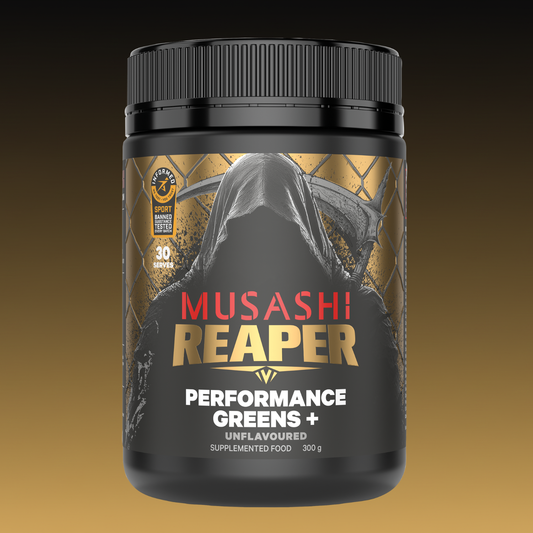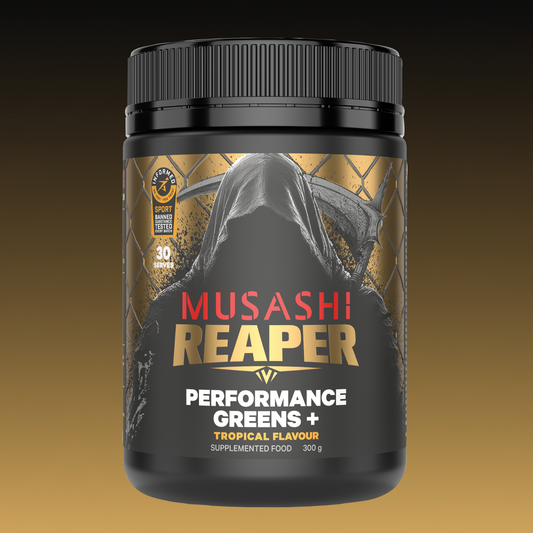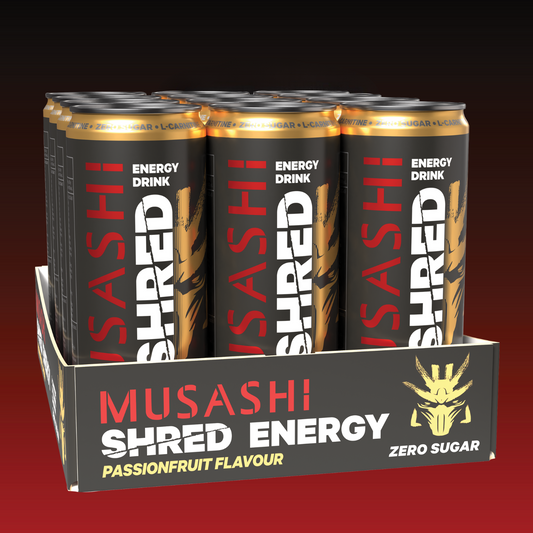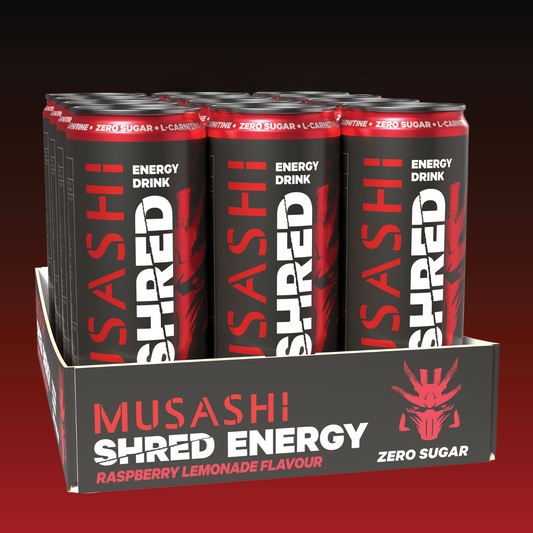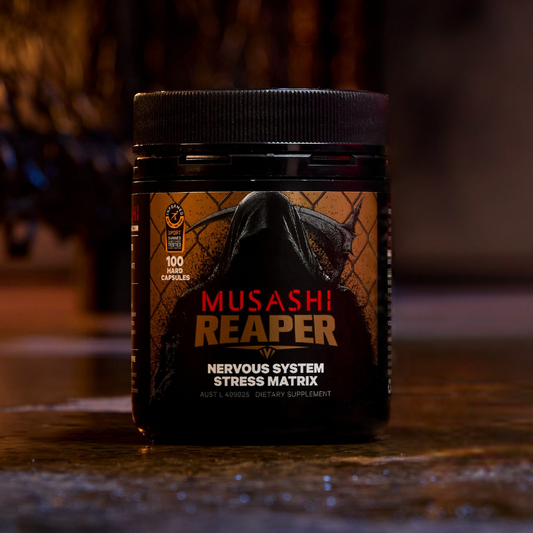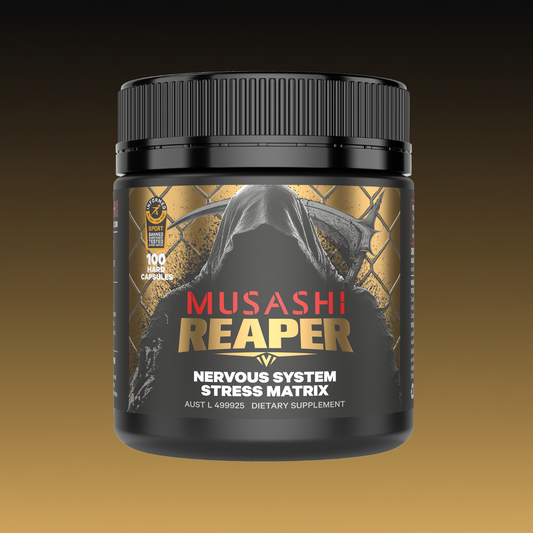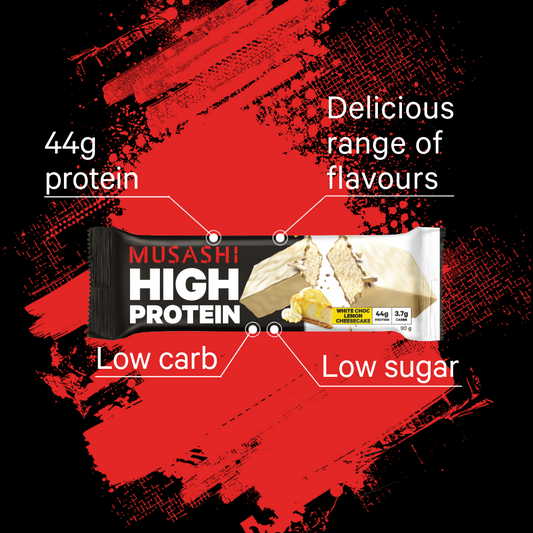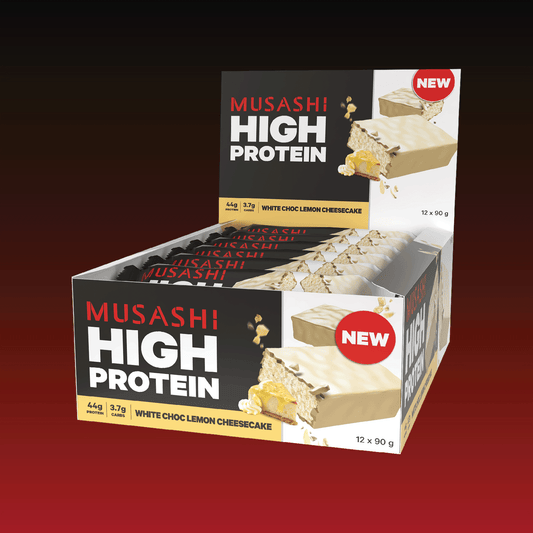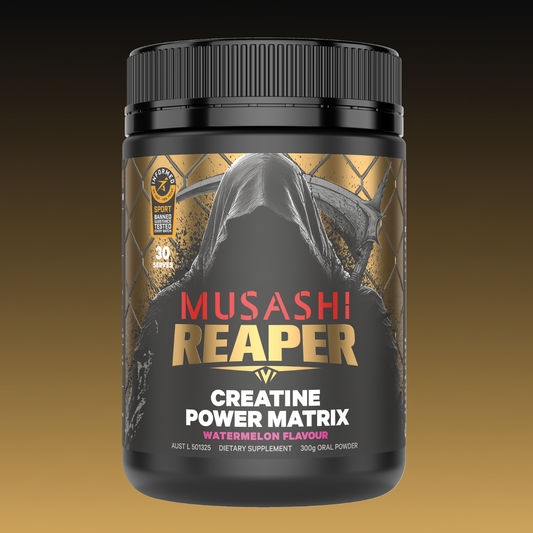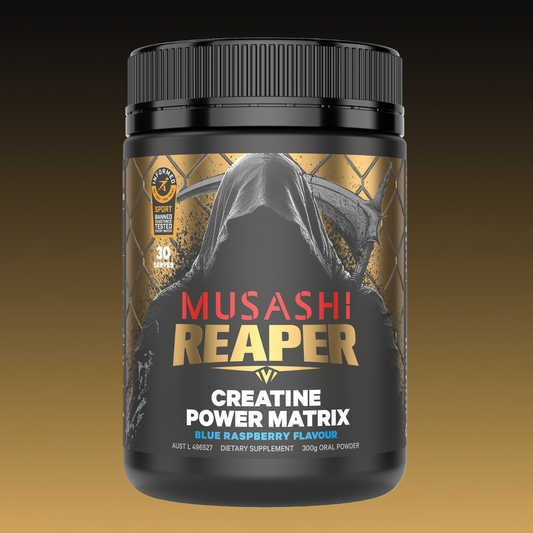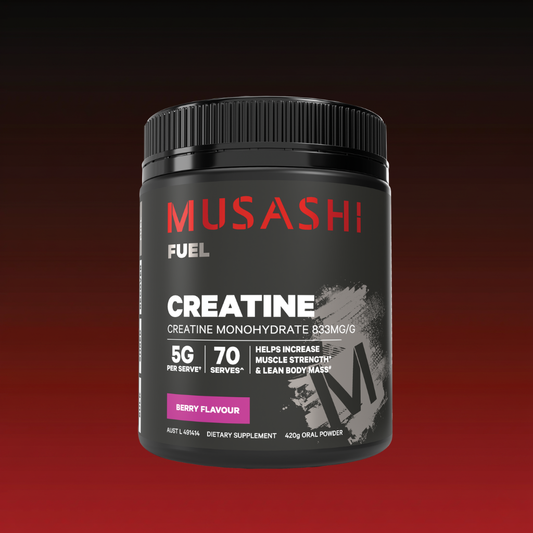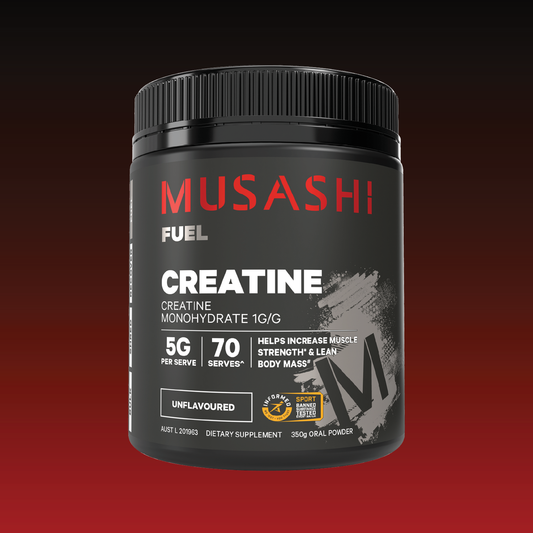PRODUCT FAQS
When should I consume protein powder relative to exercise?
Consuming protein immediately after exercise is optimal, as this is when the body is in an insulin-sensitive state and is most effective at absorbing nutrients and aiding in recovery. However, what is more important that timing is ensuring that the total quantity of protein consumed throughout the day is an adequate amount.
What is a safe age to start taking supplements?
Musashi does not recommend the consumption of sport nutrition supplements before the age of 16. However, if you wish to start consuming at 15 or younger, please consult your GP or healthcare professional. We recommend starting with Musashi High Protein Powder as an entry level product.
When and why should I consume carbs?
Carbohydrates are the body’s main source of energy, not only for exercise, but for cognitive and organ function. Carbs are important to consume before exercise to ensure optimal performance, as well as after to support recovery. The type and volume of carbs consumed should depend on an individual’s training and goals. The optimal timing for consuming carbs is before and after training to ensure adequate fuelling and to support recovery respectively.
What are the different types of protein and how do they differ?
- Whey – sourced from milk, well researched and complete protein. 26g of protein per 29g serve
- Casein – sourced from milk, well researched and complete protein. 23g of protein per 29g serve
- Egg White – dairy free, complete protein. 23g of protein per 29g serve
- Collagen – not particularly well researched, incomplete protein. 25g of protein per 29g serve
- Bone Broth – not particularly well researched, incomplete protein. 26.5g of protein per 29g serve
- Soy – well researched, plant-based and complete protein, but common allergen. 24g of protein per 29g serve
- Pea – plant-based source of BCAAs, low in EAA methionine. 22g of protein per 29g serve
- Rice – hypoallergenic, gluten-free, low in EEA lysine. 23g of protein per 29g serve
- Hemp – contains omega-3s and fibre, low in EAA lysine. 14.5g of protein per 29g serve
What are the benefits of consuming caffeine before exercise?
Caffeine helps mask the feeling of tiredness and fatigue, providing energy which can contribute to improved performance and increased output. Products such as Musashi Energy and Musashi Pre-Workout include caffeine as an energy booster, along with other ingredients to support focus and endurance.
How much protein should I consume each day?
The amount of protein consumed each day will depends on an individual’s training and goals. However, a good standard to aim for is 2g of protein for every kilogram of bodyweight, each day. For example, someone who exercises occasionally-regularly and weighs 80kg should consume approximately 160g of protein each day. The minimum amount of protein an athlete should aim for is 1.5g per kg of bodyweight.
How are protein powders made?
Concentrates: Protein is extracted from animal (e.g. milk) or plant based foods (e.g pea/rice) by using enzymes or heat, concentrates are the least processed type of protein and typically contain around 70-80% protein by weight. Concentrates often still contain naturally occurring peptides which may have additional health and performance benefits.
Isolates: Protein isolates have an additional filtration step where carbs, sugar and fat are removed. This results in a very high percentage of protein, often 90% or more by weight. Although the naturally occurring peptides are removed during the processing steps, isolates have an additional benefit of being faster digesting.
What is Keto?
The ketogenic diet is a low-carb, high-fat diet that encourages the body to burn fat instead of carbohydrates. This occurs when the body is unable to rely on glucose that is available in carbs, and rather relies on ketone bodies, a type of fuel that the liver produces from stored fat. A typical keto diet can be broken down into 10% carbs, 24% protein and 66% fat.
Why plant protein?
Plant protein can be obtained from a variety of vegan sources, including chia, pea, rice, soy and hemp. Vegan sources of protein are typically more sustainable to obtain, and the vegan diet is shown to have significant health benefits. However, plant proteins typically have incomplete amino acid profiles when compared to animal protein, this is why consuming a variety of protein sources is important. Musashi Plant Protein Powder contains a blend of pea, brown rice and chia seed protein.
Do all athletes need protein?
Protein can be beneficial to athletes of all sports, not just gym goers. Protein is essential for recovery, and can play a significant role in returning to athletic form after training and competition. Other supplements can also be beneficial to everyday athletes, specifically those designed to fuel exercise and support recovery.
What makes a good pre-workout?
A good pre-workout, supports focus, muscle function and blood flow during exercise. An optimal pre-workout does not just rely on caffeine to provide a short term energy boost, but includes other ingredients to support focus, endurance and recovery. Four ingredients to seek are Citrulline, Beta-Alanine, Creatine and BCAAs. Musashi Pre-Workout includes all of these ingredients, and is batch-tested to ensure that no foreign substances are present.
What are amino acids?
Amino acids are organic compounds that contain amino and carboxylic acid. They are the building blocks of protein, and are essentially how protein exists outside of a food state. There are nine essential amino acids, which must be consumed for the body to obtain them. There are also eleven non-essential amino acids, which the body produces itself. When protein is consumed, our body digests it by breaking protein down into amino acids which are then absorbed into the body.
What are macronutrients in sports nutrition?
Macronutrients refer to the three nutrient groups: protein, carbohydrates, and fat. Energy is derived from these 3 macronutrient groups and each macro performs a different functional role within the body. Vitamins and minerals are what are known as micronutrients, and are not included in these three macro groups.
What is a good nutrition plan?
An optimal nutrition plan is designed to support an athlete striving to achieve a set of specific goals. This nutrition pan will work synergistically with a training program to ensure that an athlete is able to fuel for and recovery post-exercise, over a series of intervals in the pursuit of an objective. These dynamic goals are typically based on each athlete’s sport, and should be adjusted accordingly. The best nutrition plan is one that fits your lifestyle and that you can ultimately adhere to.
What is the best source of protein?
Based on measures of gram of protein per 100g, and the amino acid profile – Whey protein is the most superior form of protein for building muscle and improving performance. Dairy proteins such as whey and casein are well researched and have a complete amino acid profile. Not everyone can tolerate large amounts of dairy, so alternative forms of protein such as plant based proteins including pea and rice protein have benefits for those who want a non-dairy source. Certain other forms of protein like collagen have incomplete amino acid profiles and are currently not as well-researched.
Is shred and burn best for weight loss and is it a meal replacement?
Thank you for reaching out. The Shred and Burn Protein Powder is indeed an excellent choice for supporting weight loss goals. It's formulated with high protein and minimal carbohydrates and fats, while also containing added fat burners to enhance metabolism.
Regarding its suitability as a meal replacement, while the powder provides valuable protein for weight management, it lacks the comprehensive nutritional profile necessary to replace a balanced meal entirely. However, it can be incorporated into smoothies with additional ingredients such as milk, yogurt, and fruits to create a more substantial and nutritious meal option. As a standalone product, it can serve as a convenient snack
The Shred and Burn Protein Powder isn't exclusively tied to exercise, it can also be consumed as a high-protein snack to promote satiety during mid-morning or afternoon periods. It's worth noting that due to its caffeine content, caution should be exercised when consuming it late in the day.
